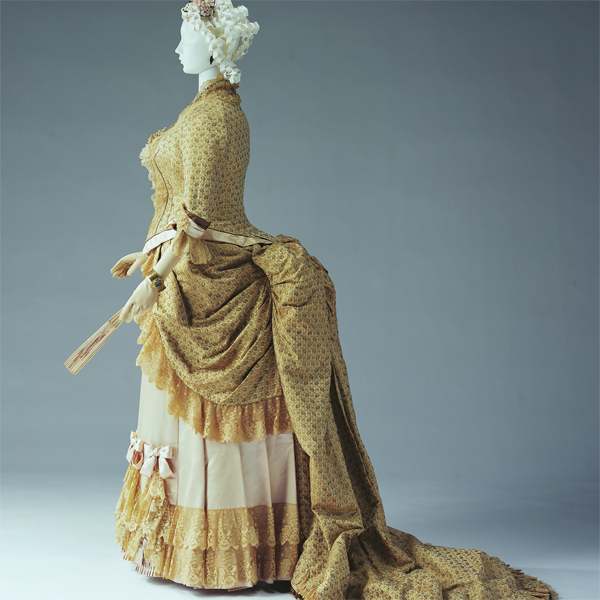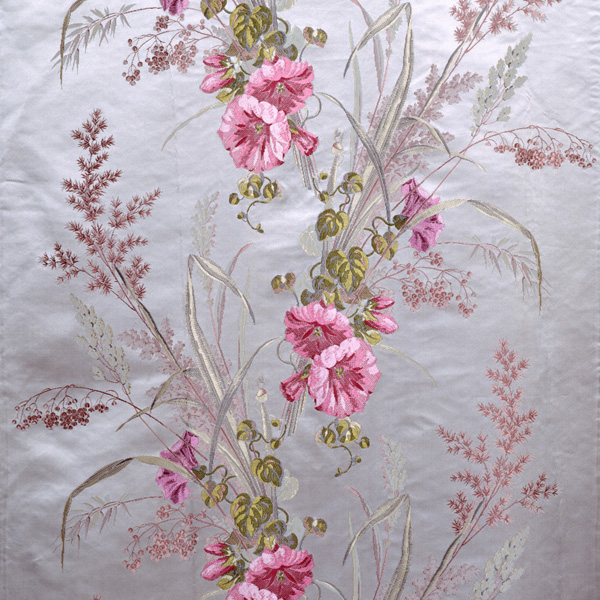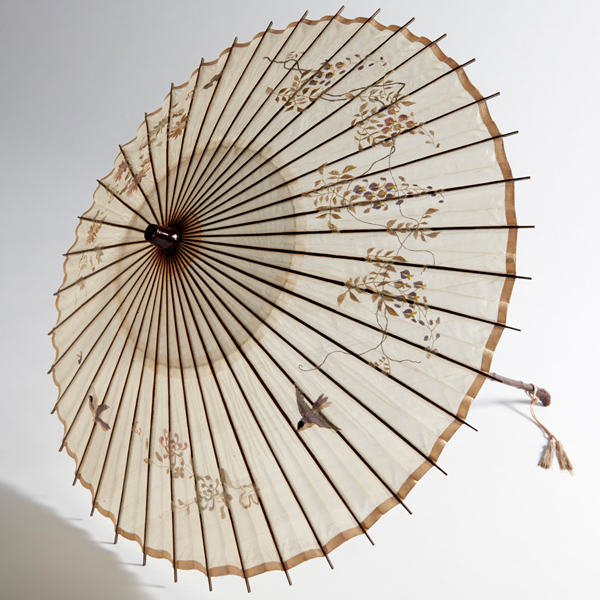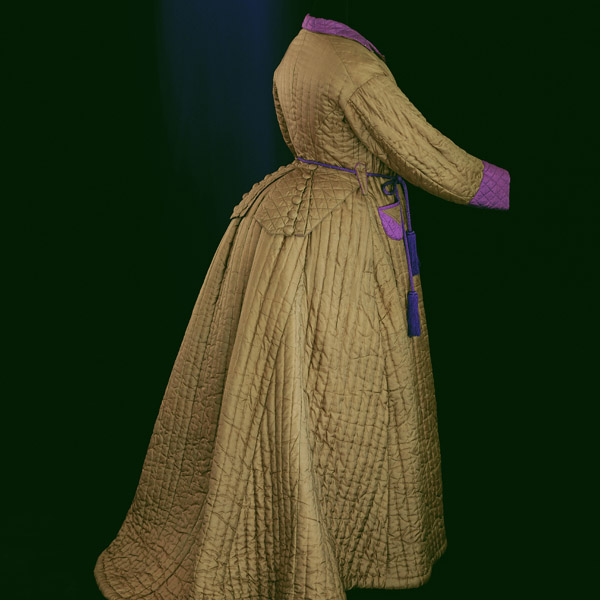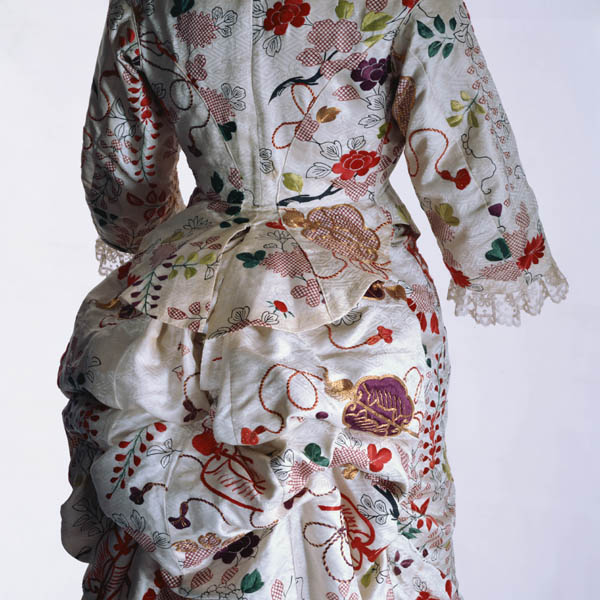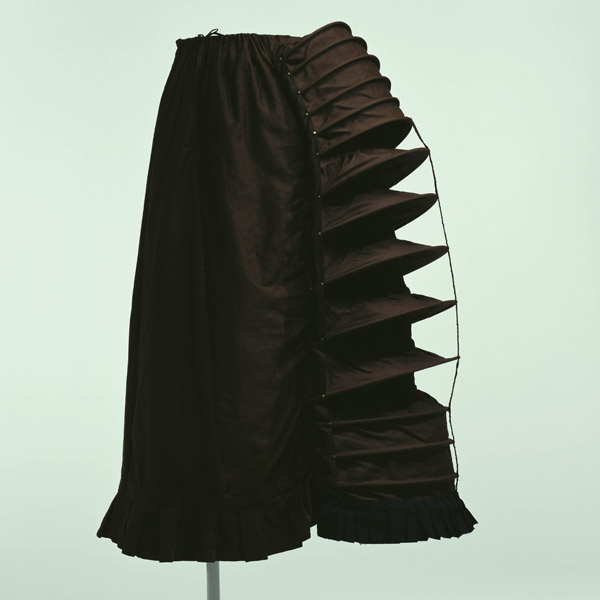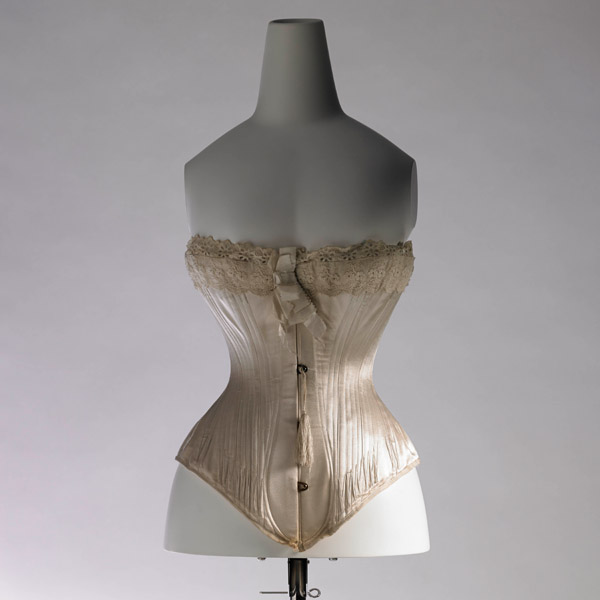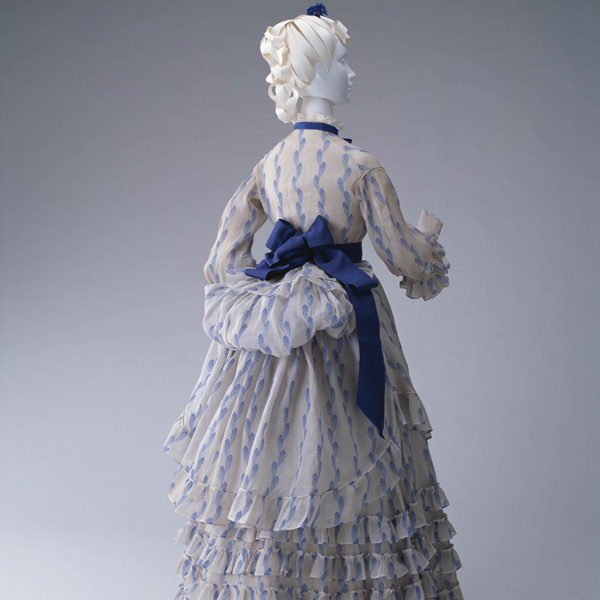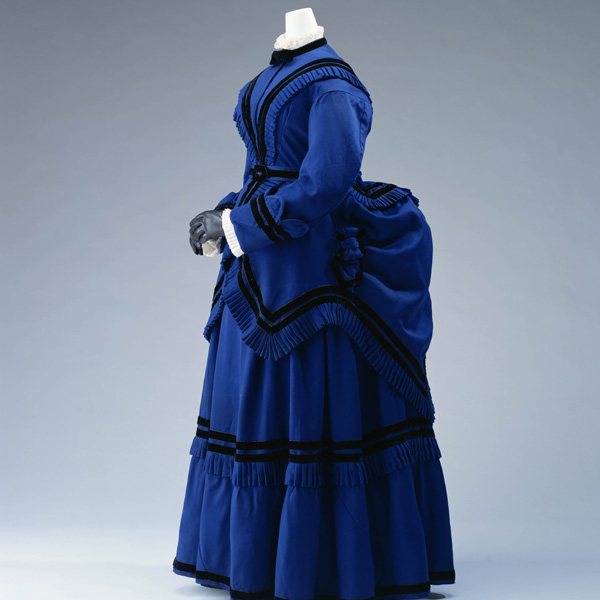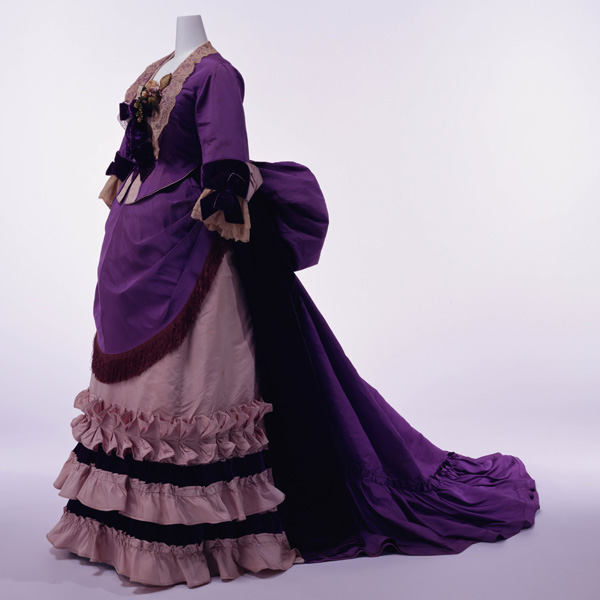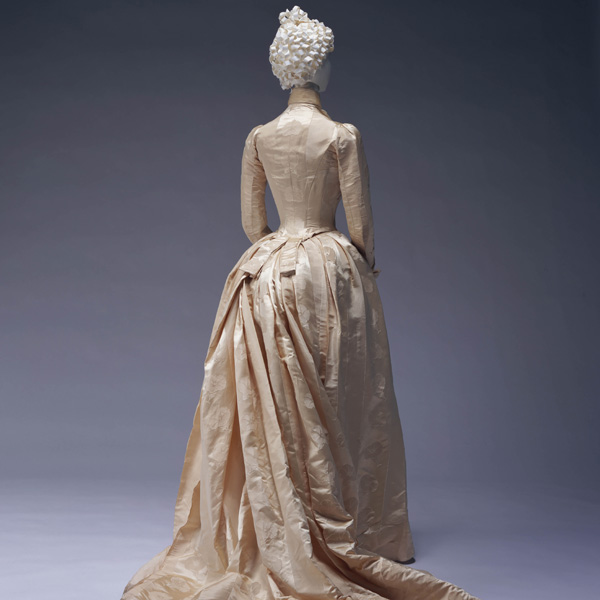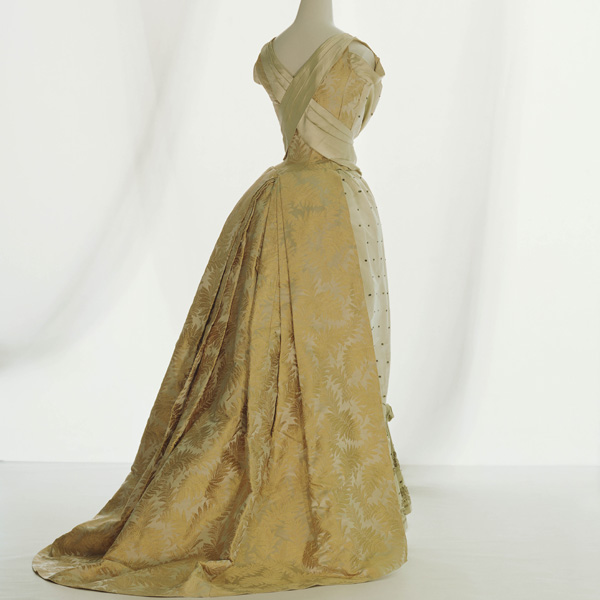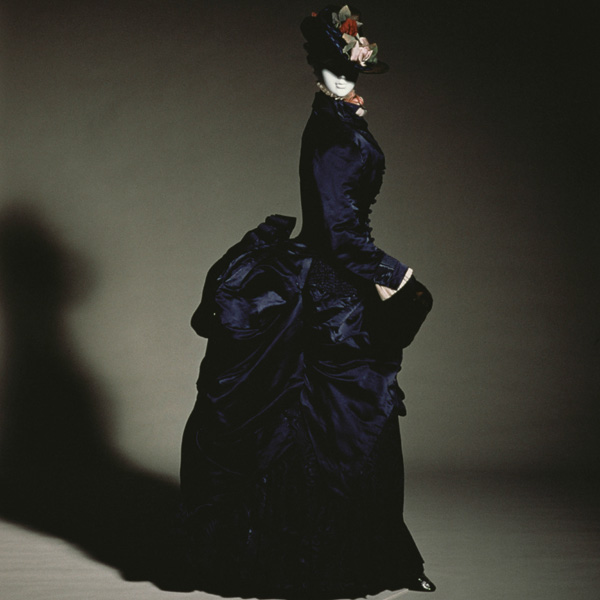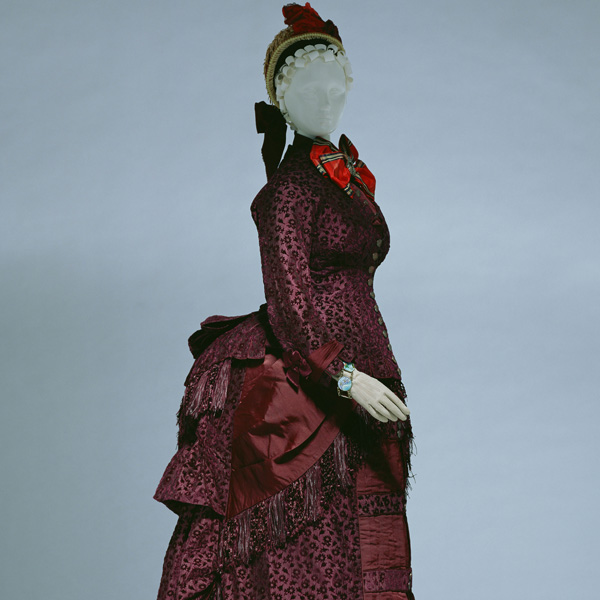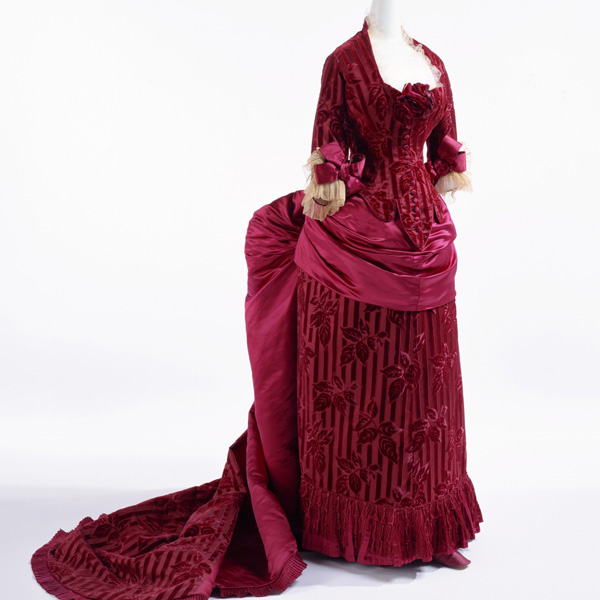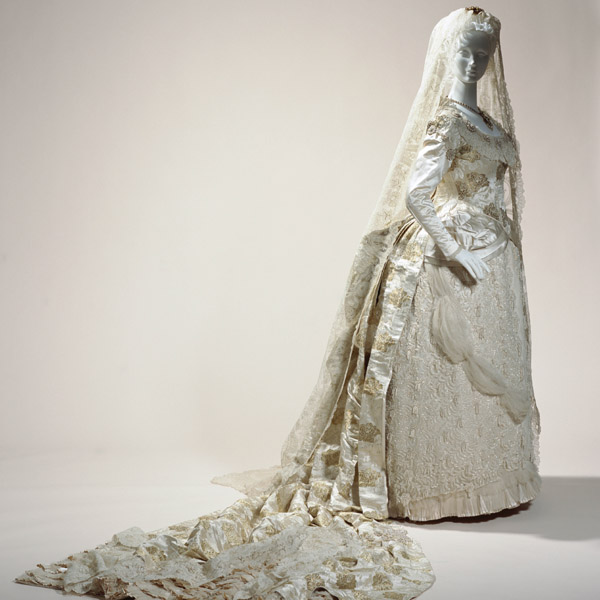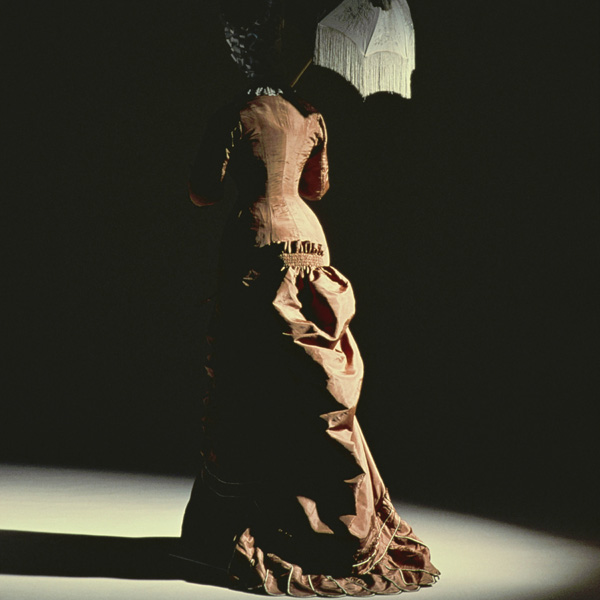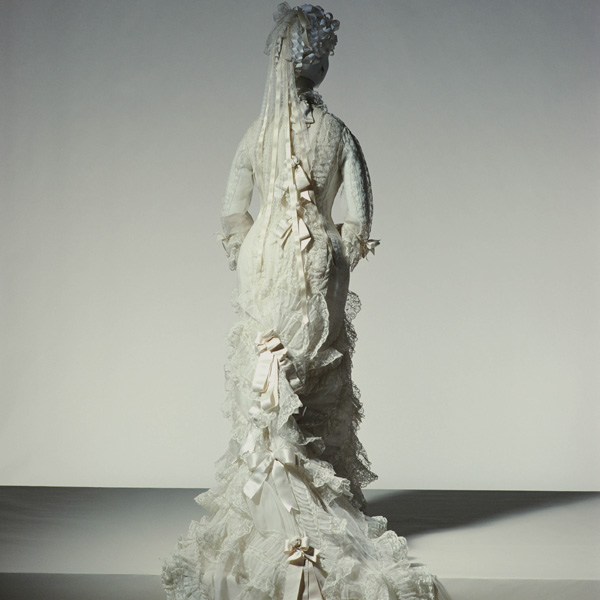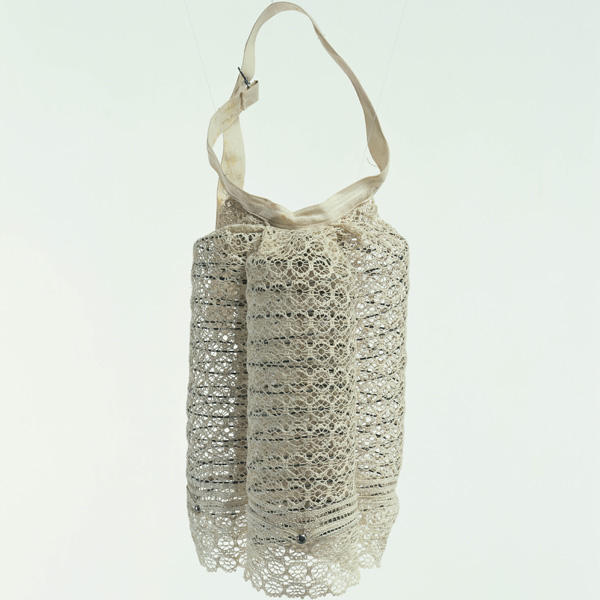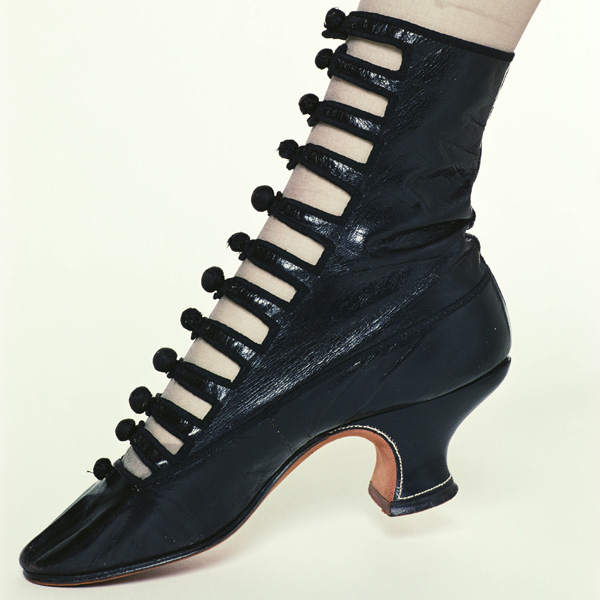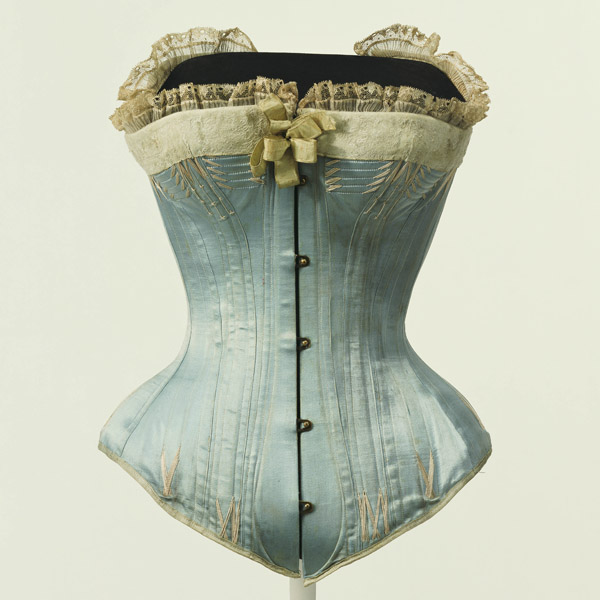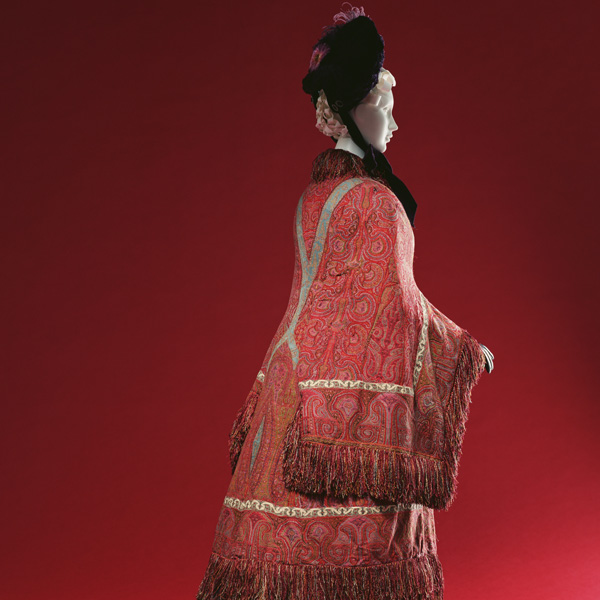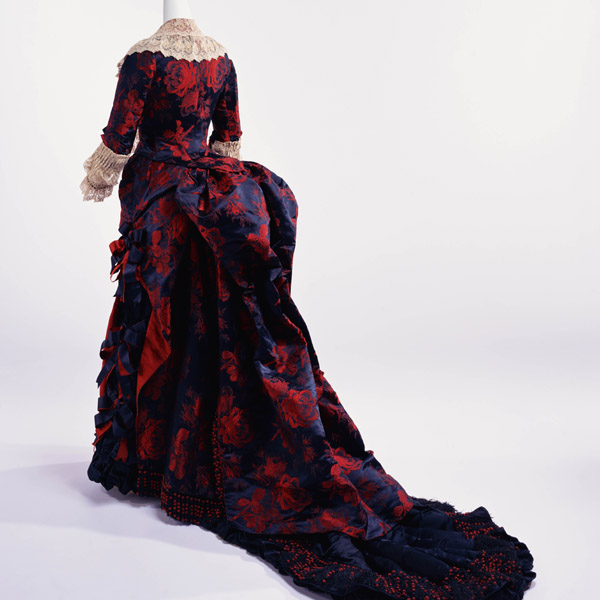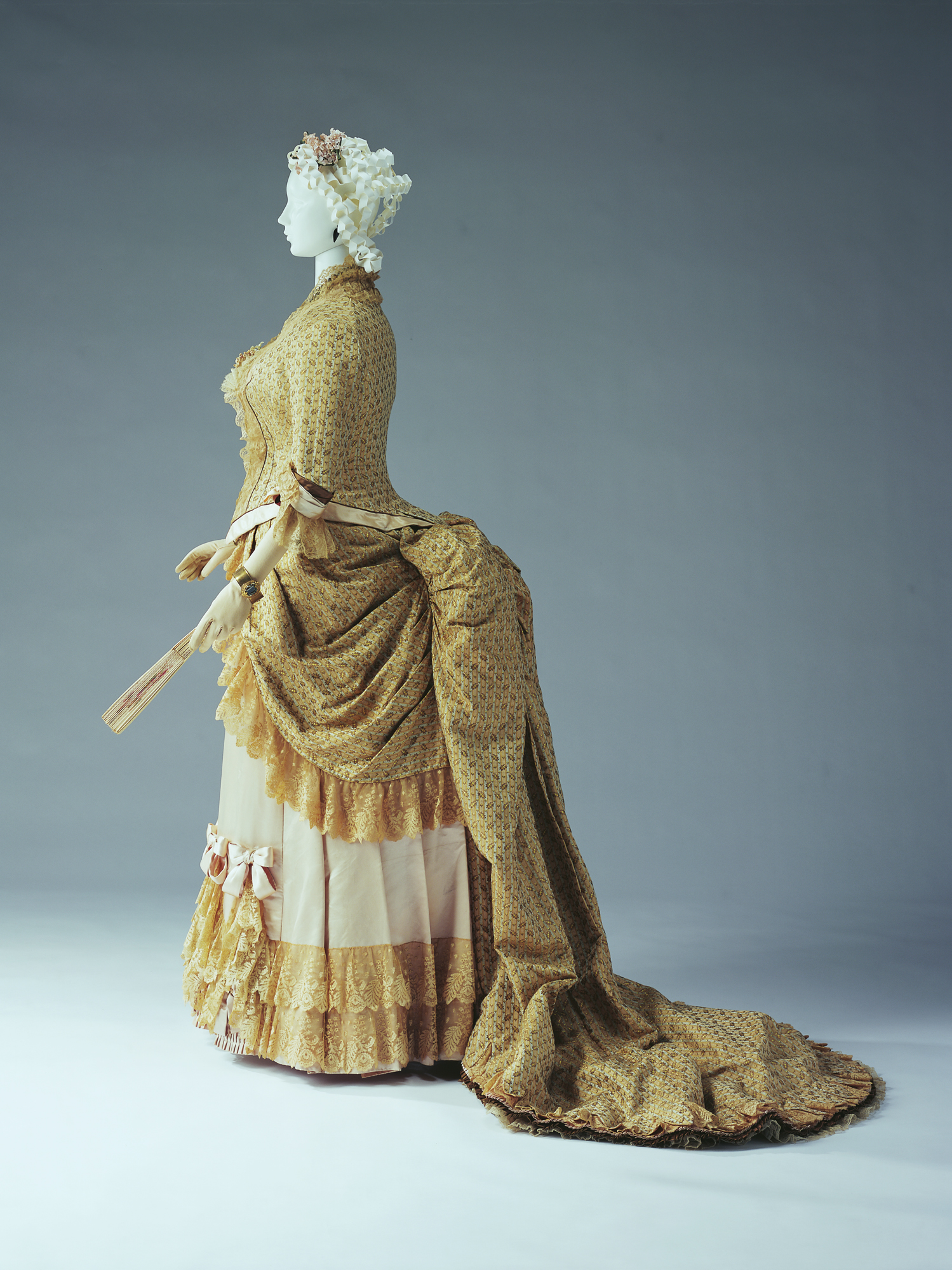
© The Kyoto Costume Institute, photo by Takashi Hatakeyama
You can enlarge by putting the mouse cursor on the image.
Reception Dress
c.1881
- Designer
- Charles Frederick Worth
- Brand
- Worth
- Label
- WORTH 7, RUE DE LA PAIX. PARIS
- Material
- Beige figured silk with stripes and floral patterns in blue, pink silk threads. Pink silk satin for skirt; self-fabric bows and silk lace. Set of bodice and skirt. The train with silk lace dust ruffles, the length is 175cm from the waist and the width is 133cm.
- Inventory Number(s)
- AC902 78-25-14AB
A bustle style dress with volume on the rear waist created with the generous use of fabric which has been draped and tucked. The rear view of the dress is one of its main attractions, while the train which drags on the floor is finished with a lace dust ruffle. A dust ruffle refers to the ruffle attached to the inside of the hem of a long dress or petticoat to prevent the dress from becoming soiled when the wearer goes out walking. The long train enhances the sumptuousness of the dress and conveys a sense of prestige and worthy to be worn at an official banquet.
A strict protocol dictating the clothing worn by the upper classes was established in the late nineteenth century. Women, in particular, had to change seven or eight times a day to suit the time of the day and the location. The dresses which appeared in fashion magazines of the day, which featured the most recent trends, were categorized into, for example, “the reception dress” or “the afternoon dress” and is an indication of the degree of segmentation of women’s clothing at the time.
 Digital Archives
Digital Archives